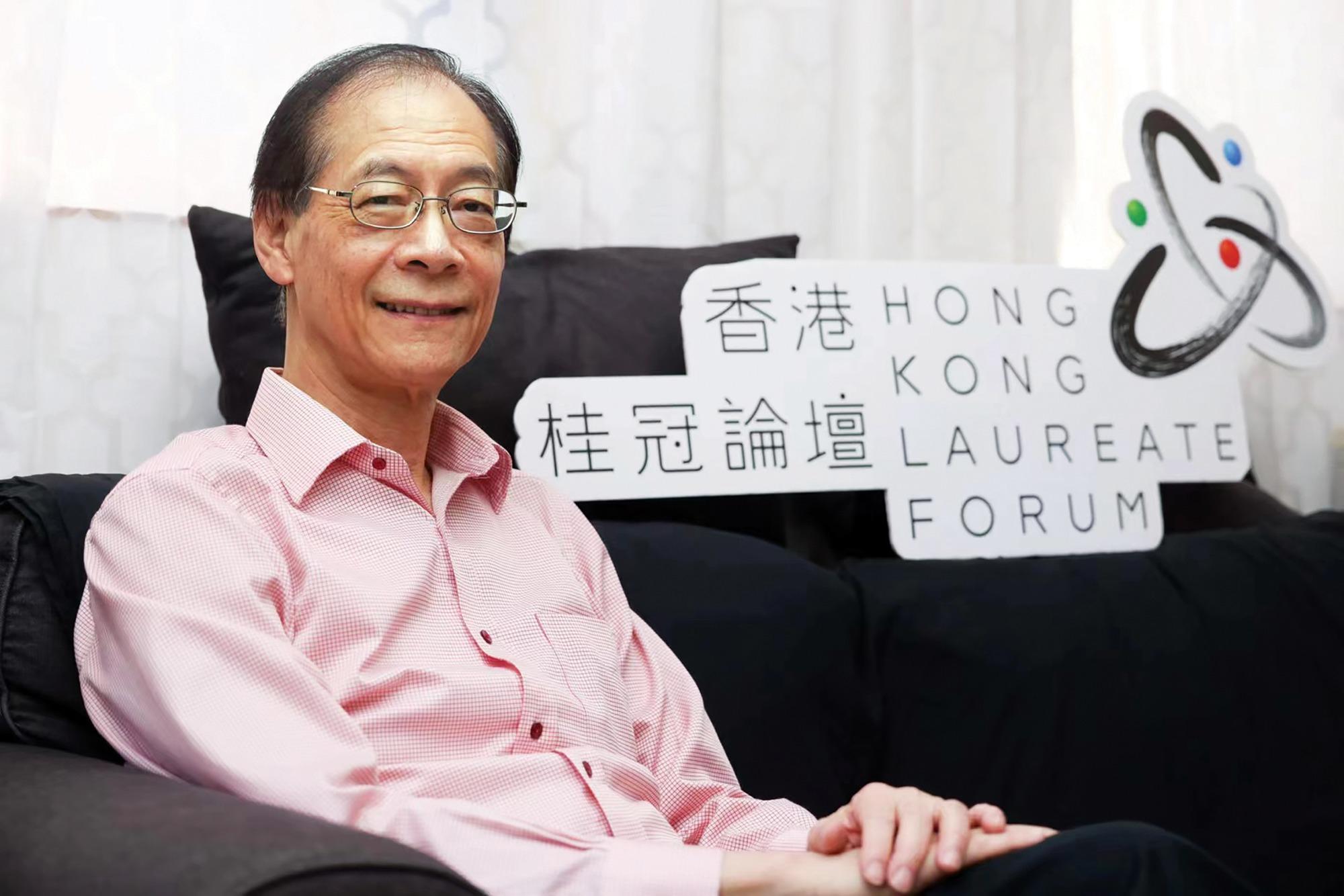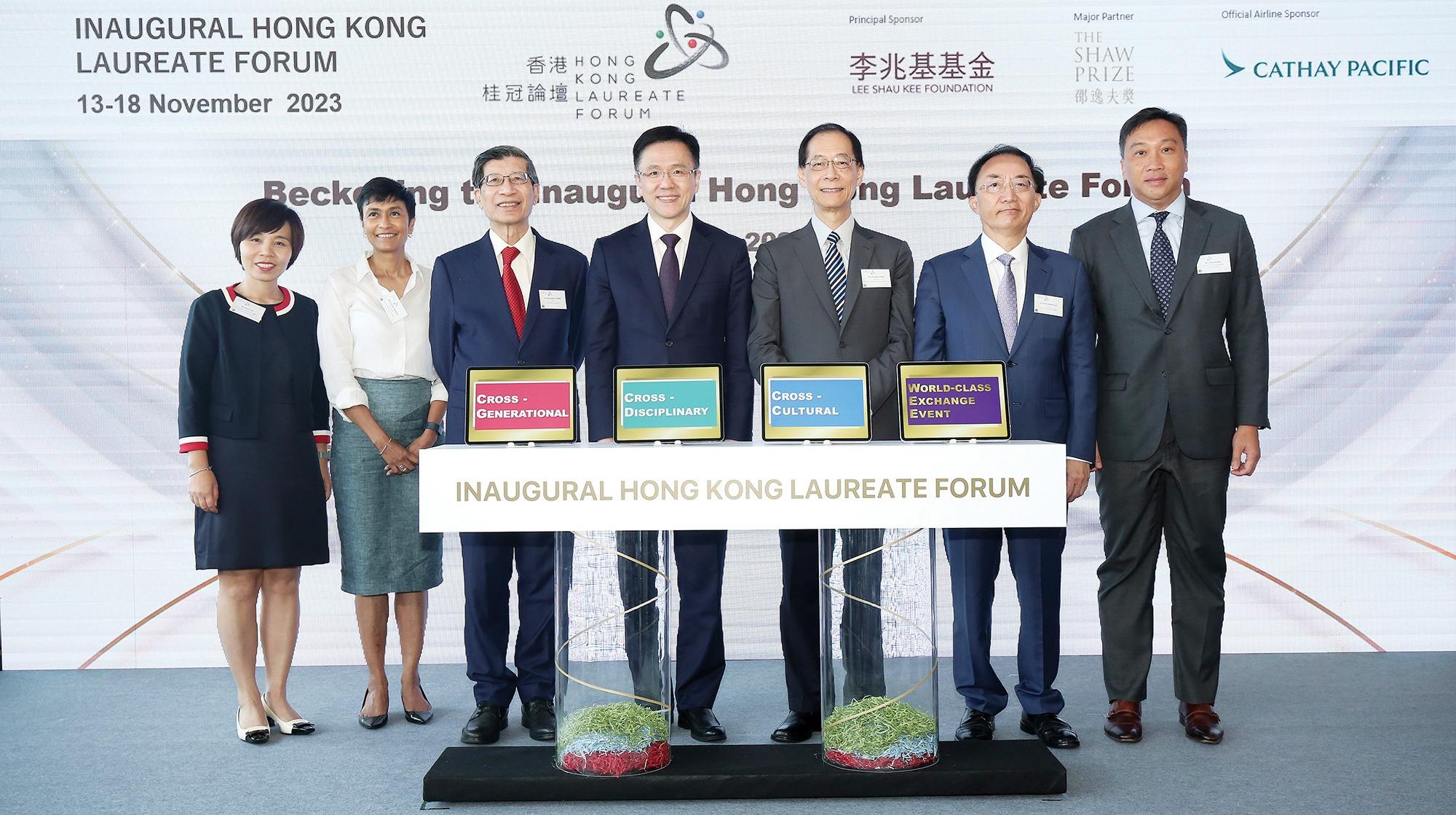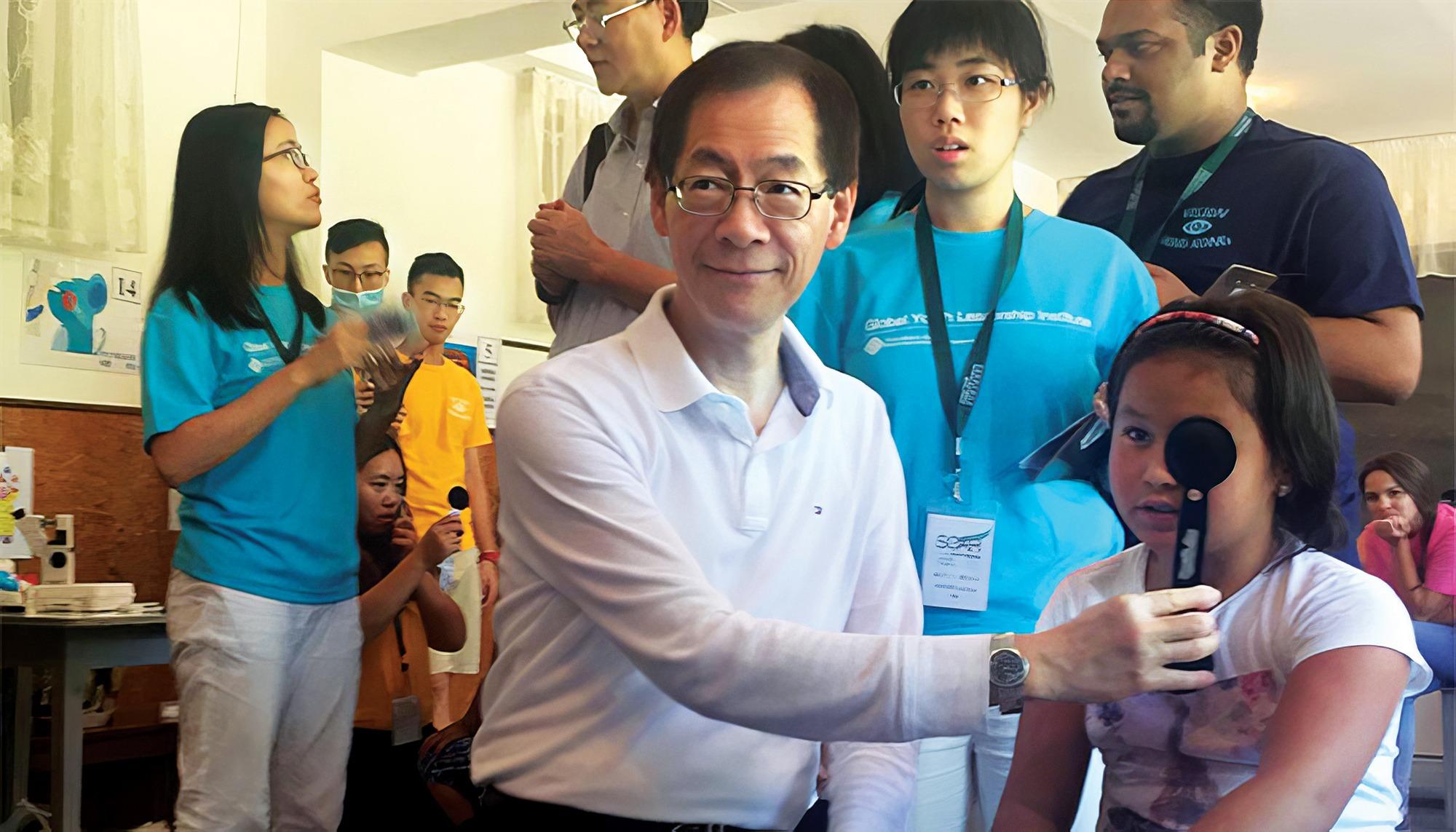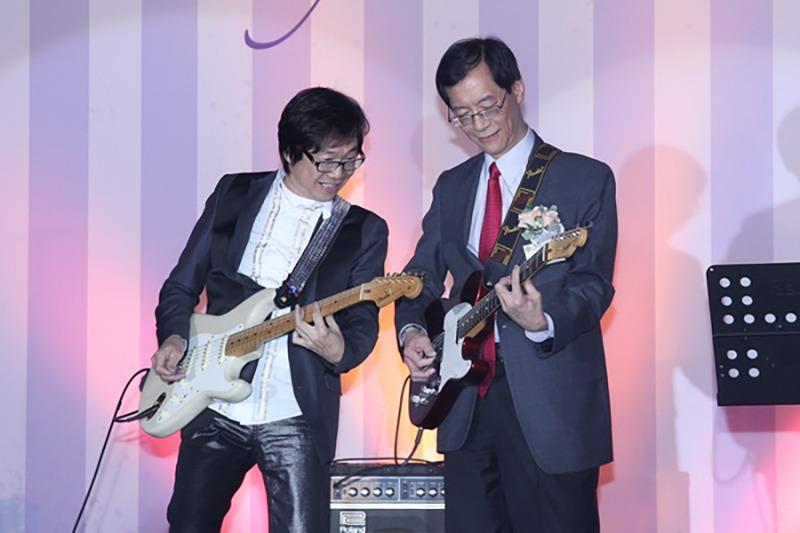Hong Kong has been making every effort to turn itself into a world-class science, innovation and technology powerhouse. One of the biggest challenges is attracting and nurturing talents. Retired scientist Timothy Tong Wai-cheung talks to Xi Tianqi in Hong Kong.
 Timothy Tong Wai-cheung in an exclusive interview with China Daily. (Calvin ng / China Daily)
Timothy Tong Wai-cheung in an exclusive interview with China Daily. (Calvin ng / China Daily)
Hong Kong is set to host a team of top-notch world scientists next month as part of its mission to ignite a passion for science among the city’s brightest young people.
For the first time in the history of the Shaw Prize — a coveted international award established in the Hong Kong Special Administrative Region in 2002 to honor those who’ve made outstanding contributions to academic and scientific research — more than 20 Shaw Prize laureates will set foot in the city for the inaugural Hong Kong Laureate Forum from Nov 13 to 18. They’ll hold seminars, deliver lectures and hold discussions with 200 young scientists from over 30 countries and regions.
Sowing scientific seeds among the SAR’s brightest young minds, the laureates will share insights into research and advancement at four middle schools in as many districts, with students enjoying close interactions with the top academic brains.
“The forum is a platform that goes beyond a particular field, region, culture or the world,” says Timothy Tong Wai-cheung, who will chair the event. “It’s our goal to create something different during the laureates’ weeklong visit, enabling youngsters to acquire a deep interest in science.”
In an interview with China Daily, Tong says besides university students and young minds from high schools, researchers and budding scientists will be attending, as interest in science should be developed at an early age to cultivate talent.
The forum aims to bring science to the attention of those who might still hesitate whether to pursue a career as a scientist or a researcher, he says. The objective has been a lifelong mission for Tong, whose quest has forged ahead vigorously over the past few decades.
The international expert in thermal conductivity started his undertaking from the time he was president of Hong Kong Polytechnic University through to being chairman of the Hong Kong Laureate Forum. As a prominent scientist in the United States, Tong hadn’t considered returning to Hong Kong until he was approached by a recruiter in 2007 to assume the top post at PolyU.
 Timothy Tong Wai-cheung (second right), chairman of the Hong Kong Laureate Forum, poses for a photo with guest officials on June 6 at the launch ceremony of the Hong Kong Laureate Forum. The inaugural Hong Kong Laureate Forum will take place from November 13 to 18. (PHOTO PROVIDED TO CHINA DAILY)
Timothy Tong Wai-cheung (second right), chairman of the Hong Kong Laureate Forum, poses for a photo with guest officials on June 6 at the launch ceremony of the Hong Kong Laureate Forum. The inaugural Hong Kong Laureate Forum will take place from November 13 to 18. (PHOTO PROVIDED TO CHINA DAILY)
Giving back
Before taking up the PolyU job from 2009 to 2018, he was a professor and dean of the School of Engineering and Applied Science at George Washington University. He had never contemplated the PolyU position although he had grown up near the campus and has retained a special affection for the institution.
Following decades of academic experience in the US, it was Tong’s first job in his homeland. Excited by the new post, he says he wanted to give back to Hong Kong what he had learned in the US, and was confident of scaling new heights for PolyU.
Tong took the helm at PolyU in 2009 as the city’s tertiary education system was going through drastic changes. The previous structure of three years of college studies was extended to four years. Under the new 3-3-4 academic system, students are required to complete three years of studies in junior high school, three years in senior high school, and four years at university.
Every college faced the same question: How could they plan an additional year of studies for students?
Instead of introducing extra curricula for students, PolyU asked its senior students to come up with projects and apply what they had learned in school. “Think about it. Every year, thousands of students graduate from universities. That’s massive manpower going out to serve the community. In return, students can gain rare and valuable experiences,” he says.
Tong cites a project by more than 30 optometry students who volunteered to provide vision screening services for underprivileged children in Kyrgyzstan during the 2017 summer. Tong, who accompanied the student team, was surprised to find that half the children there who didn’t wear glasses were nearsighted, some severely.
Despite being aware of the problem, there wasn’t a single eyeglass store or eyewear industry in Kyrgyzstan at the time. On their return to the SAR, the students made new glasses from recycled spectacle frames and sent them to Kyrgyzstan. Through the project, they saw how they could help others by applying their skills, observes Tong.
Another yearlong undertaking that impressed him was a solar-powered lighting system designed and made by engineering students that has been used on the PolyU campus. The system was later applied to an African country that had no electricity. “You can imagine how much the system has improved the living quality of that country’s people,” he says.
 Timothy Tong Wai-cheung (left) provides vision screening services for a girl in Kyrgyzstan during the 2017 summer. More than 30 optometry students from PolyU joined the volunteer activity to help underprivileged children in Kyrgyzstan. (PHOTO PROVIDED TO CHINA DAILY)
Timothy Tong Wai-cheung (left) provides vision screening services for a girl in Kyrgyzstan during the 2017 summer. More than 30 optometry students from PolyU joined the volunteer activity to help underprivileged children in Kyrgyzstan. (PHOTO PROVIDED TO CHINA DAILY)
High hopes
Tong has witnessed the rapid development of Hong Kong and the nation, especially the launch of the Guangdong-Hong Kong-Macao Greater Bay Area. With high hopes for the 11-city cluster region, he says he’s certain it will become a first-class world bay area for innovation and technology within the next decade. The economically vibrant area, with a population of more than 80 million, is on par with that of any country in Europe. Hong Kong, heavily linked with the international community, excels in basic research, and there aren’t too many places in the world like Hong Kong, with so many prestigious universities in such a small city, he says.
In Tong’s view, Hong Kong can collaborate with the Chinese mainland’s Greater Bay Area cities, such as Shenzhen, Guangzhou and Zhongshan, powerhouses that have paid growing attention to academic research.
In recent years, the HKSAR government has been beefing up efforts to support the transfer of research and development results. Hong Kong has earmarked HK$10 billion ($1.28 billion) for the development of InnoHK — the government’s flagship innovation and technology initiative. The project, comprising two research clusters — Health@InnoHK and AIR@InnoHK — houses 28 leading research laboratories. More than 2,000 researchers from Hong Kong and all over the world work in these facilities.
“One of the key goals of these labs is to commercialize research and development results by setting up companies. The startups will create high-quality jobs that will attract talents,” says Tong, who’s also a member of the InnoHK Steering Committee.
He notes that Hong Kong now has more job opportunities relating to innovation and technology than a few years ago. But, more can be done to provide high-quality employment opportunities for young talents and solve their housing problems. By addressing these challenges, Hong Kong can create an environment that encourages young scientists to stay and contribute their skills to the city’s scientific development. Tong also serves as an independent non-executive director of mainland tech titan Xiaomi Corporation, which was listed among Fortune Global 500 companies for the fifth consecutive year in 2023.
Describing industry bellwethers like Lei Jun, who founded Xiaomi, as a “role model”, Tong is encouraging Hong Kong’s young people to follow in the footsteps of their predecessors.
Tong, who will be 70 next year, says he still has many goals to realize, including his lifelong efforts to nurture talent.
After stepping down as president of PolyU, Tong has been the CEO of AMTD Foundation since July 2019. The foundation is a charity group that makes donations to universities for raising talent. “That’s my life now,” says Tong, adding he has no plans yet to call it a day.
 Timothy Tong Wai-cheung (right) plays the guitar at a PolyU Charity dinner in 2012, one of many activities held to celebrate the university’s 75th anniversary. (PHOTO PROVIDED TO CHINA DAILY)
Timothy Tong Wai-cheung (right) plays the guitar at a PolyU Charity dinner in 2012, one of many activities held to celebrate the university’s 75th anniversary. (PHOTO PROVIDED TO CHINA DAILY)
Education
• Doctorate in mechanical engineering, the University of California at Berkeley, 1980.
• Master’s degree in mechanical engineering, the University of California at Berkeley, 1978.
• Bachelor’s degree in mechanical engineering, Oregon State University, 1976.
Career highlights
• Chairman of the Hong Kong Laureate Forum
Tong has more than three decades of teaching, research and administrative experience at universities in the United States and Hong Kong.
• 2021 — A senior adviser to Edvantage Group.
• 2019 — Independent non-executive director of Xiaomi Group, chairman of the company’s Nominations Committee, and member of the Corporate Governance Committee.
• 2019 — CEO of AMTD Foundation. The charity organization was created to fulfill the corporate social responsibilities of AMTD Group Company.
• 2018 — President of the Hong Kong Academy of Engineering Sciences.
• 2013-2023 — Member of the National Committee of the Chinese People’s Political Consultative Conference.
• 2010 — Made a non-official Justice of the Peace.
• 2010 — Director of the China Association (H.K.) for Science and Society.
• 2009-2018 — President of the Hong Kong Polytechnic University.
Contact the writer at lindaxi@chinadailyhk.com


